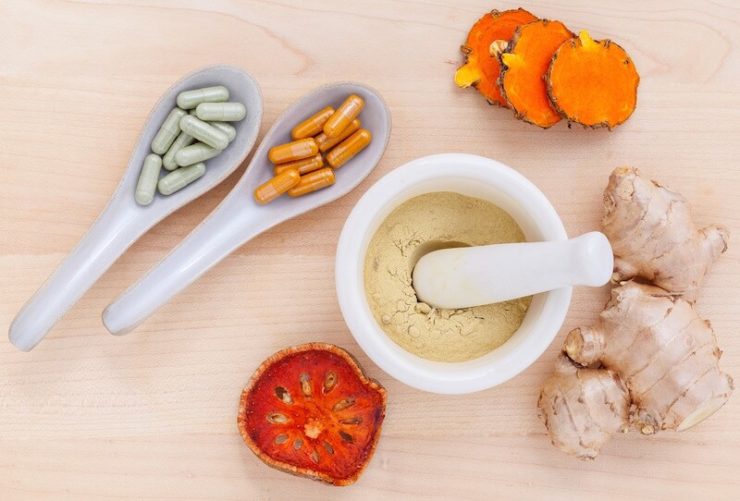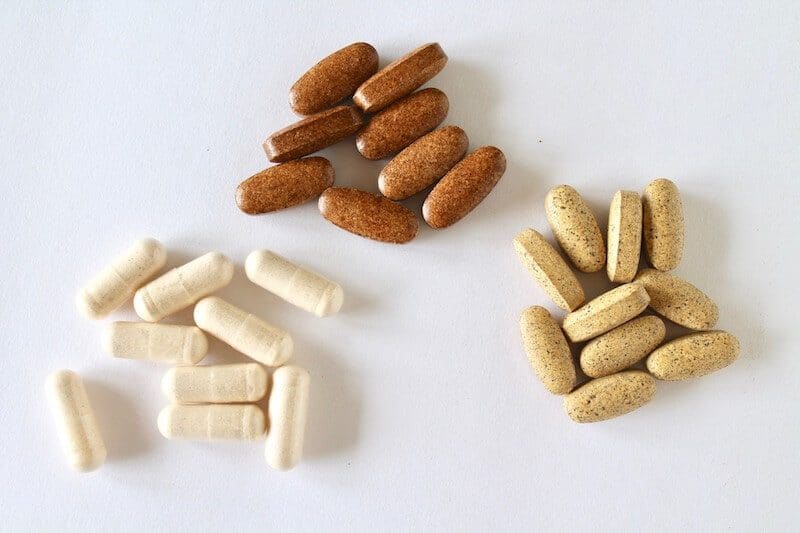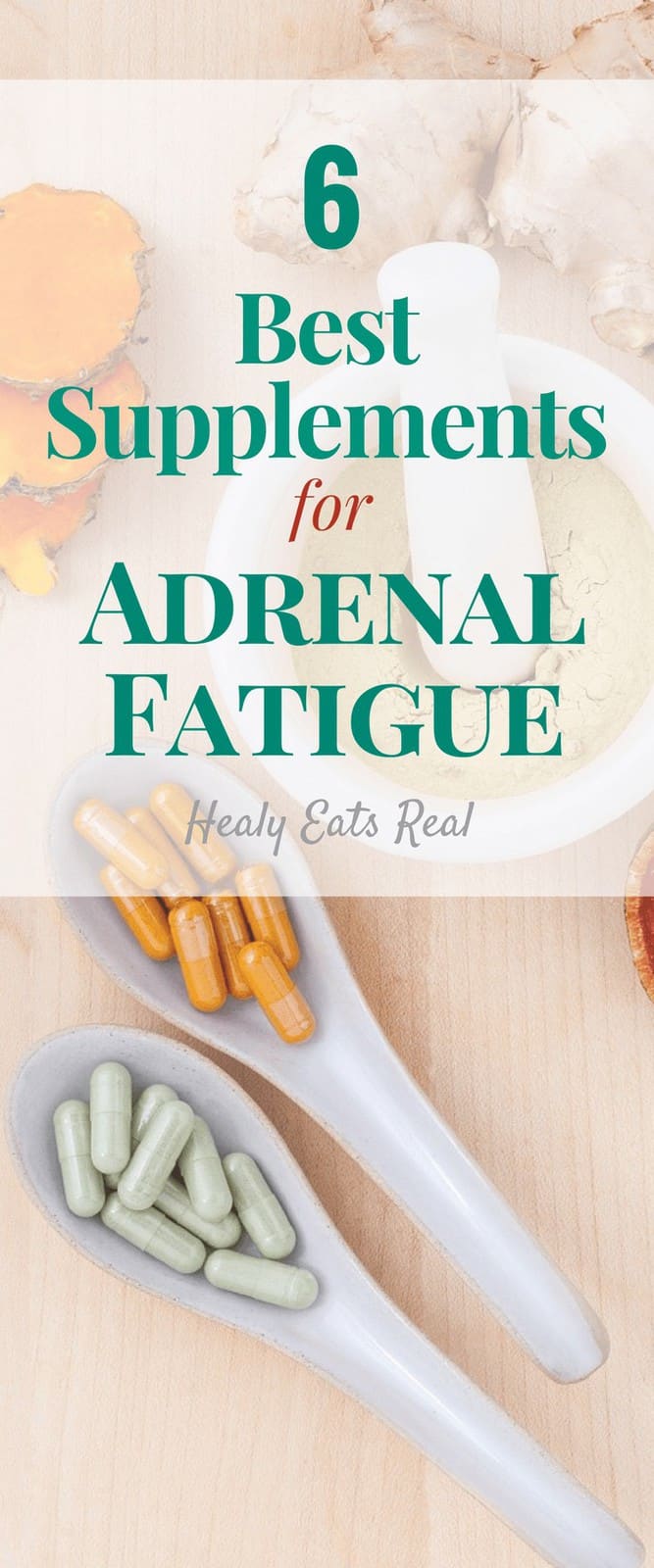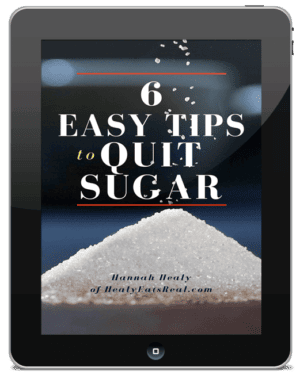6 Best Supplements for Adrenal Fatigue
This post may contain affiliate links. As an Amazon Associate I earn from qualifying purchases. Please read the disclosure policy.
The right adrenal fatigue supplements can make a world of difference in improving your symptoms. Find out which six supplements are the top recommended by professionals to help heal your adrenal fatigue.

If you have adrenal fatigue, recovery is so important since the constant tiredness can be debilitating to your work, family, health and social life. You wake up tired in the morning, you feel like you need a nap around 3pm and you feel wired but tired at night rendering yourself unlikely to sleep well during the night.
Does this scenario sound familiar to you? This is all too common for those suffering with adrenal fatigue.
What is Adrenal Fatigue?
The adrenal glands, walnut-shaped organs that are found above the kidneys, are responsible for producing stress hormones such as cortisol, epinephrine and norepinephrine. When released in the right amounts, all of these hormones serve a useful purpose.
Normally, the stress hormone cortisol is naturally high in the morning, as one of its purposes is to keep you alert. It continues to decline throughout the day and cortisol is lowest at night, when you want to wind down to sleep.
When you have adrenal fatigue, however, the production of cortisol could be too high or too low at different times of the day. This is why many people with adrenal fatigue may feel extremely tired in the morning and wired at the end of the day and cannot fall asleep. This is because cortisol is not functioning normally. This causes a vicious cycle in which you wake up feeling tired with decreased levels of energy throughout the day.

Adrenal Fatigue Symptoms
Feeling tired is only one of the symptoms of adrenal fatigue. Other symptoms include:
- Overeating/eating unhealthy foods
- Weight gain
- Craving salty foods
- Waking up feeling tired in the morning
- Increased energy at night
- Overuse of stimulants like caffeine
- Inability to handle stress
- A weakened immune system

How Chronic Stress Contributes to Adrenal Fatigue
It is estimated that 60-80 percent of visits to primary care physicians is related to either acute or chronic symptoms of stress. Stress is the natural response of the body when it feels that it is in danger.
Imagine that you are about to be attacked by a bear. The body shuts down processes like digestion and pumps out stress hormones to make you more alert to run for your life. Once the danger has passed, the stress hormones decrease and everyday processes like digestion resume.
This scenario is called the “fight or flight” response and it is critical for dangerous situations. However, in today’s fast-paced society with long commutes, deadlines, financial obligations, sedentary lifestyles, the “fight or flight” response is happening all day, every day.
Unfortunately, this chronic low-grade stress is a recipe for developing adrenal fatigue, which is the underlying culprit to many chronic diseases like cardiovascular disease and immune insufficiency.
How To Eat To Enhance Optimal Adrenal Function
In addition to supplements that can help with adrenal fatigue, you can also tweak your diet in order to be cohesive with the natural cycles of adrenal hormone release.
Know which foods to include in your diet and which to avoid. Stay away from these foods that can actually make your condition worse. Include these foods to foster healing.
The 6 Best Adrenal Fatigue Supplements:
Before you start taking sleeping pills or other medications you typically use to calm your nerves, there are natural supplements you can try, along with dietary changes, that will boost optimal adrenal functioning. This will help you to sleep better, gain energy and enhance immune function.
1. Ashwaganda (Withania somnifera)
Ashwaganda, also known as Indian ginseng, is an adaptogenic herb known to decrease symptoms of stress.
- In animal studies, ashwaganda counteracted the symptoms associated with extreme stress, including changes in blood sugar, adrenal weight and cortisol levels.
- It also decreased symptoms of depression and anxiety-associated behavior.
- Ashwaganda is being studied as a means to counteract stress stemming from chemotherapy and radiation therapy. Results look promising in that the herb stimulates stem cell proliferation and improves red blood cell, white blood cell and platelet parameters.
What’s the best way to take ashwaganda?
Since ashwaganda seems to have a calming effect, it is recommended to take this supplement before bedtime.
Get recommended ashwaganda here.
2. Rhodiola rosea
Rhodiola rosea is another adaptogenic herb that is known for its ability to affect hormones like serotonin, dopamine and norepinephrine.
- In a double-blind, randomized, controlled trial, sixty subjects with stress-related fatigue were given a standardized proprietary Rhodiola rosea product (576 milligrams of Rhodiola rosea) or placebo in two daily doses (morning and lunchtime) for twenty-eight days. The Rhodiola group experienced improved concentration associated with decreased stress related fatigue and significant decreases in salivary cortisol compared to the placebo group.
- Other studies have shown Rhodiola to improve fatigue and mental performance in physicians on night duty as well as improved physical fitness, psycho-motor function, mental performance and general well-being in students.
What’s the best way to take Rhodiola?
Be sure to take the well-researched form of Rhoodiola called Rhodiola Rosea. Avoid any supplements listing “Rhodiola spp“ since it doesn’t tell you which kind of rhodiola you are getting.
Along with the supervision of a doctor or naturopath, it’s best to try out 200-300mg per day of rhodiola rosea standardized to at least 3% rosavins.
Get recommended Rhodiola here.
3. Licorice Root (Glycyrrhiza uralensis)
Licorice may work synergistically with cortisol to help improve energy. In other words, this may be an ideal herb for people who do not produce enough cortisol.
- The medical journal Molecular and Cellular Endocrinology found that licorice root aided the body in effectively regulating cortisol.
What’s the best way to take Licorice?
Since licorice can boost cortisol production, this supplement is best taken in the morning when cortisol levels should be at their highest. However, for some people licorice can be too energizing and affect sleep.
It’s important to know your cortisol levels with salivary testing to see where you are at and look over it with a naturopathic doctor or experienced nutritionist.
Get a recommended licorice tincture here.

4. Holy Basil Leaf
Holy Basil leaf is another herb that is documented for its stress-relieving, neuroprotective and cognitive enhancing effects.
- In a human study, participants given 300 milligrams of Holy Basil extract over thirty days saw marked improvement in cognitive function as well as salivary cortisol levels.
- The compounds within holy basil have been studied to help anti-stress activity.
What’s the best way to take Holy Basil Leaf?
Holy basil can be taken in the form of a teas known as tulsi tea. However, to get a stronger therapeutic benefit, a tincture or supplement can be helpful. Generally 300-600mg per day is recommended.
Get recommended holy basil here
5. Phosphatidylserine (PS)
Phosphatidylserine is a phospholipid found in cells that plays an important role in muscle metabolism and immune function. It has been shown to balance cortisol overproduction, especially following intense exercise.
- Several studies done on male athletes showed that PS decreased the production of cortisol after intense exercise.
What’s the best way to take Phosphatidylserine (PS)?
Be sure to get phosphatidylserine and not “phosphorylated serine“. Generally it is recommended to start with 300mg daily for the first month, spreading it out by taking 100mg with each meal. After that, maintain with 100-200mg once a day.
Get recommended phosphatidylserine here.
6. Tyrosine
Tyrosine is an amino acid that is a precursor to neurotransmitters such as dopamine and norepinephrine. Stress causes the depletion of these neurotransmitters. By aiding these neurotransmitters, Tyrosine can help support your response to stress.
- Supplementing with tyrosine will reduce the decline of dopamine and norepinephrine and can improve performance in times of stress.
What’s the best way to take Tyrosine?
It is recommended to take 500-2000mg of tyrosine in between meals or before a stressful event. Lower doses are needed for those with lower body weight and higher doses for higher body weight.
Get recommended Tyrosine here.

Testing Your Adrenal Levels To REALLY Know How to Recover…
It can be hard to know the right supplements to take to recover from the crippling fatigue that is a tale-tell sign of adrenal fatigue. Depending on if your cortisol is too high or too low, you may want to take different actions. For example, if your cortisol is too high you may want to avoid taking stimulation supplements like licorice.
The best way to know how to rebalance is to test your adrenals with a salivary cortisol test. This is the best way to know whether your cortisol is too high or too low and will help you know what to do to get your energy back.
Unfortunately, most regular doctors don’t offer this test, so you can either ask for one from a naturopathic doctor or order one yourself from True Health Labs like I do (this is the at-home test kit I get– use my code HEALY5 for 5% Off).
I get my adrenal testing done with True Health Labs and test every so often especially when I’m feeling extra fatigued and think something might be going on with my cortisol. I then go over the test with my nutritionist to figure out a plan of action and decide which supplements would help be based on my test results.
More Adrenal Fatigue Resources:
- Ketogenic Diet: Why It’s Risky for People with Adrenal Fatigue
- AVOID This Type of Exercise If You Have Adrenal Fatigue
- 6 Foods to Avoid on An Adrenal Fatigue Diet
- 6 Best Foods for Adrenal Fatigue
References:
- https://www.ncbi.nlm.nih.gov/pmc/articles/PMC4286362/#R1
- https://www.ncbi.nlm.nih.gov/pubmed/9629292
- https://www.ncbi.nlm.nih.gov/pubmed/10075127
- https://www.ncbi.nlm.nih.gov/pubmed/9582008
- https://www.ncbi.nlm.nih.gov/pubmed/18476388
- https://www.ncbi.nlm.nih.gov/pubmed/?term=Kuttan+G.+Use+of+Withania+somnifera+Dunal+as+an+adjuvant+during+radiation+therapy.+Indian+J+Exp+Biol+1996%3B34%3A854-856.
- https://www.ncbi.nlm.nih.gov/pubmed/8866726
- https://www.ncbi.nlm.nih.gov/pubmed/19016404
- https://www.ncbi.nlm.nih.gov/pubmed/11081987
- https://www.ncbi.nlm.nih.gov/pubmed/10839209
- https://www.ncbi.nlm.nih.gov/pubmed/26571987
- https://www.ncbi.nlm.nih.gov/pmc/articles/PMC1997116/
- Monteleone P, Beinat L, Tanzillo C, et al. Effects of phosphatidylserine on the neuroendocrine response to physical stress in humans. Neuroendocrinology 1990;52:243-248. 89.
- https://www.ncbi.nlm.nih.gov/pubmed/1599383



